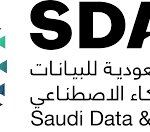World’s First Code of Practice on Ethical Use of Facial Recognition

The first ever British Standard code of practice focusing on the ethical use and deployment of facial recognition technology (FRT), developed on recommendations by the BSIA, has been released this month by the British Standards Institute (BSI).
“The release of the FRT code of practice is a significant moment in the journey towards the ethical use of this AI biometric technology in the United Kingdom, and as the first of its kind in the world,”
Pauline Norstrom, CEO, Anekanta Consulting and Anekanta AI
The code of practice, Facial recognition technology – Ethical use and deployment in video surveillance-based systems – Code of practice (BS 9347:2024) – has been developed by the BSI, in its role as the UK National Standards Body, to allay concerns by helping organisations build public trust with its proliferation prompting concerns about safe and ethical use. The BSIA’s leadership on the issue began in 2020 with the setting up of a special interest group dedicated to the issue, publishing the industry-first ethical and legal guide on facial recognition, which was acknowledged by UK Government and was the initial template for developing the new standard.
The standard, written for the industry, by the industry, will now allow the legal and ethical usage of this technology advancement in improving the safety and security of people, property and places. Addressing the ethical challenges faced by those using this artificial intelligence(AI) technology, its foundation is based on six overarching AI principles of ‘trustworthiness’, namely governance and accountability, human agency and oversight, privacy and data governance, technical robustness and safety, transparency and explainability, diversity, non-discrimination, and fairness. The origin of the principles of trustworthiness come from the Organisation for Economic Co-operation and Development (OECD), EU, and alignment with UK AI Regulatory principles.
The standard sets out to build trust with those that develop, use, and are subject to its use. It is applicable to the whole supply chain, beginning with an assessment to determine the need to use FRT, to its procurement, installation, and appropriate and continued use of the technology.
To avoid confusion, the standard also provides a clear delineation between the types of FRT deployment. Those being its use for identification (who is it?) purposes where a ‘human-in-the-loop’ is necessary, and for Verification (is it you?) purposes where human intervention is not needed.
Pauline Norstrom, CEO, Anekanta Consulting and Anekanta AI, also Chair of the BSIA’s AI & Biometrics Special Interest Group, said: “The release of the FRT code of practice is a significant moment in the journey towards the ethical use of this AI biometric technology in the United Kingdom, and as the first of its kind in the world, it shows that British Industry is leading the way in this work with a procedural standard written for developers, integrators, deployers and stakeholders of FRT.”




















